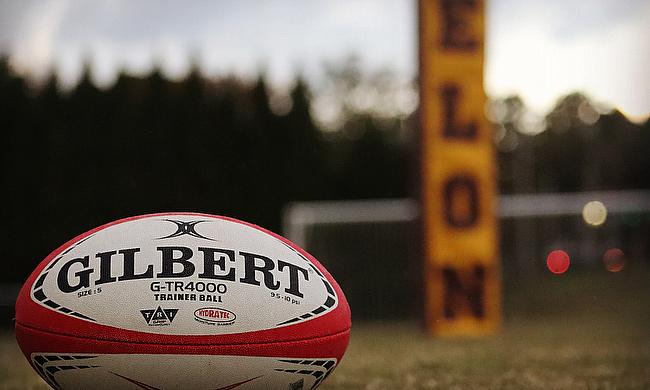European Corporate Sponsorship in Rugby: Business Behind the Game
The European rugby landscape has evolved into a sophisticated commercial ecosystem where corporate partnerships drive the sport's growth from grassroots to elite levels.
With the European sponsorship market recovering to pre-pandemic heights at €30.9 billion in 2023, rugby has carved out a significant niche, representing 5% of the continent's sports sponsorship market according to European Sponsorship Association research.
The Current Sponsorship Landscape
Rugby's commercial appeal extends far beyond traditional boundaries, with sponsors increasingly embracing digital marketing strategies to reach diverse audiences. Major corporations are developing comprehensive campaigns that span multiple channels, from stadium naming rights to online promotions and digital content partnerships. The European market has witnessed particularly innovative approaches, with sponsors leveraging social media platforms, mobile applications, and interactive digital experiences to engage rugby fans.
The digital transformation has created new opportunities for cross-industry collaborations, particularly in markets where online entertainment sectors intersect with sports marketing. Poland, which demonstrated exceptional 19% growth in sponsorship market value in 2023, has become a pioneer in integrated digital partnerships. Polish rugby fans often search for entertainment bonuses using queries like "darmowe kody do kasyn" when seeking promotional offers from sponsors. This behavior has led rugby marketers to develop sophisticated cross-platform campaigns that combine traditional sports sponsorship with digital entertainment partnerships, creating comprehensive fan engagement strategies that extend well beyond match days.
Major Corporate Players and Investment Values
European rugby attracts substantial corporate investment across multiple levels, with financial services and technology companies leading the charge.
|
Sponsor
|
Competition/Team
|
Annual Value
|
Sector
|
|
Investec
|
Champions Cup
|
£15-20M
|
Financial Services
|
|
Société Générale
|
French Rugby Federation
|
£12-15M
|
Banking
|
|
Unilever
|
World Rugby
|
£8-10M
|
Consumer Goods
|
|
Capgemini
|
World Rugby
|
£6-8M
|
Technology
|
|
Emirates
|
Various Tournaments
|
£5-7M
|
Aviation
|
|
Macron
|
7 International Teams
|
£4-6M
|
Sportswear
|
The Rugby World Cup 2023 generated approximately $143.75 million in sponsorship revenue from 38 brand partners, while Investec secured a five-season title sponsorship of the Champions Cup, demonstrating long-term commitment from major financial institutions. The European Rugby Champions Cup has become Europe's premier club competition, attracting sponsors across multiple sectors who recognize its international reach spanning six countries.
Investment Growth Trends
Rugby's commercial transformation has been driven by several key factors:
-
Private Equity Investment: CVC Capital Partners invested £200 million for a 27% stake in Premiership Rugby and £120 million in Pro14, signaling institutional confidence in rugby's commercial potential.
-
Broadcasting Revenue Growth: Enhanced media rights deals have increased tournament values, with broadcasters recognizing rugby's growing global appeal and consistent audience engagement.
-
Digital Platform Expansion: World Rugby's partnership with streaming platforms and social media integration has opened new revenue streams, particularly targeting younger demographics.
-
Women's Rugby Investment: Unilever's multi-tournament partnership specifically emphasizes women's rugby development, reflecting growing commercial interest in women's sport.
-
ESG-Focused Partnerships: Sponsors increasingly align with rugby's community values, using partnerships to demonstrate corporate social responsibility and sustainability commitments.
-
Global Market Expansion: Rugby's penetration into new markets, particularly Asia and North America, has attracted multinational corporations seeking global brand exposure.
Benefits for Corporate Sponsors
Companies invest in rugby sponsorship for strategic advantages that extend beyond brand visibility:
-
Premium Brand Association: Rugby's values of integrity, respect, and teamwork align with corporate messaging, particularly in financial services and professional sectors.
-
Executive Hospitality Opportunities: Premium matchday experiences provide valuable client entertainment and business development platforms for B2B relationships.
-
Community Engagement: Société Générale's grassroots programs demonstrate how sponsors leverage rugby's community connections to build local market presence.
-
International Reach: European competitions provide access to diverse markets across multiple countries, offering sponsors continental exposure through single partnerships.
-
Long-Term Brand Building: Rugby's loyal fanbase creates sustained engagement opportunities, with supporters maintaining team allegiances across decades of relationship building.
-
Performance Marketing Integration: Modern sponsorship deals incorporate digital analytics and social media metrics, allowing sponsors to measure return on investment with greater precision.
ROI Measurement and Performance Metrics
Modern rugby sponsorship demands sophisticated measurement approaches that go beyond traditional media exposure calculations. Nielsen Sports' Return on Sponsorship Investment (ROSI) model provides a comprehensive framework that evaluates monetary returns alongside strategic performance indicators.
Key performance indicators for rugby sponsors include:
-
Brand Visibility Metrics: Television exposure, logo placement frequency, and share of voice during broadcasts
-
Digital Engagement: Social media mentions, hashtag usage, website traffic spikes during sponsored events
-
Fan Sentiment Analysis: Audience perception surveys and social media sentiment tracking
-
Sales Attribution: Direct revenue tracking through promotional codes and unique landing pages
-
Brand Equity Measurement: Changes in brand awareness, consideration, and preference among target demographics
-
Long-term Loyalty Indicators: Customer retention rates and Net Promoter Score improvements
Advanced measurement platforms now utilize AI technology to track logo visibility in visual content and analyze conversation patterns across social media platforms, providing sponsors with granular insights into campaign effectiveness.
Challenges and Risks in Rugby Sponsorship
Despite rugby's commercial potential, sponsors face several significant challenges that require careful consideration and strategic planning.
Market Fragmentation and Calendar Conflicts
Nielsen Sports analysis reveals that rugby faces unique structural challenges, including a fragmented global calendar and competing league interests. The sport operates across multiple time zones with overlapping competitions, making it difficult for sponsors to maximize global exposure. Unlike football's streamlined league systems, rugby's divided governance between domestic and international competitions creates complexity for multinational sponsors seeking consistent brand placement.
Revenue Underperformance Compared to Other Sports
Research indicates that rugby properties generate significantly lower media rights values compared to sports with similar fan engagement levels. The Six Nations, despite having 13.7 million UK fans comparable to Formula 1, generates approximately four times less broadcast revenue due to its commitment to free-to-air television rather than premium pay-TV platforms.
Economic and Regulatory Risks
|
Risk Category
|
Impact Level
|
Mitigation Strategies
|
|
Economic Downturns
|
High
|
Diversified sponsor portfolios, flexible contract terms
|
|
Regulatory Changes
|
Medium
|
Compliance monitoring, legal expertise
|
|
Player Injuries
|
Medium
|
Insurance coverage, squad depth investment
|
|
Cultural Barriers
|
Low-Medium
|
Local market research, cultural sensitivity training
|
Emerging Trends and Technology Integration
The rugby sponsorship landscape continues evolving through technological innovation and changing consumer behaviors, creating new opportunities for forward-thinking brands.
Digital-First Activation Strategies
Modern rugby sponsors increasingly prioritize digital activation over traditional advertising. World Rugby's sustainability initiatives have attracted environmentally conscious brands seeking authentic partnerships that align with ESG objectives. This includes carbon footprint reduction programs and biodiversity protection initiatives at rugby facilities.
Women's Rugby Growth
Women's Rugby World Cup 2025 ticket sales have already reached 275,000, doubling the 2021 New Zealand tournament figures. This dramatic growth trajectory presents significant opportunities for sponsors targeting female demographics and progressive brand positioning.
Technology integration includes:
-
AI-Powered Analytics: Real-time sentiment analysis and automated logo recognition in broadcast content
-
Virtual Reality Experiences: Immersive fan engagement platforms for remote audiences
-
Blockchain Verification: Transparent measurement of sponsorship deliverables and fan engagement metrics
-
Sustainability Tracking: Environmental impact measurement tools for carbon-neutral tournament initiatives
-
Personalized Content: Machine learning algorithms creating customized fan experiences for different demographics
-
Mobile-First Platforms: App-based experiences integrating merchandise, ticketing, and exclusive content access
Future Commercial Outlook
Nielsen Sports analysis suggests rugby has yet to fully capitalize on its commercial potential, indicating significant growth opportunities. The sport's increasing professionalization, enhanced broadcasting quality, and expanding global reach position it for continued commercial development.
Investec's commitment to environmental initiatives and player welfare programs exemplifies how modern rugby sponsorship extends beyond traditional marketing into meaningful partnership development. As private equity continues investing in rugby properties and new markets emerge, European corporate sponsorship will likely evolve toward more integrated, value-driven partnerships that benefit all stakeholders in the rugby ecosystem.


